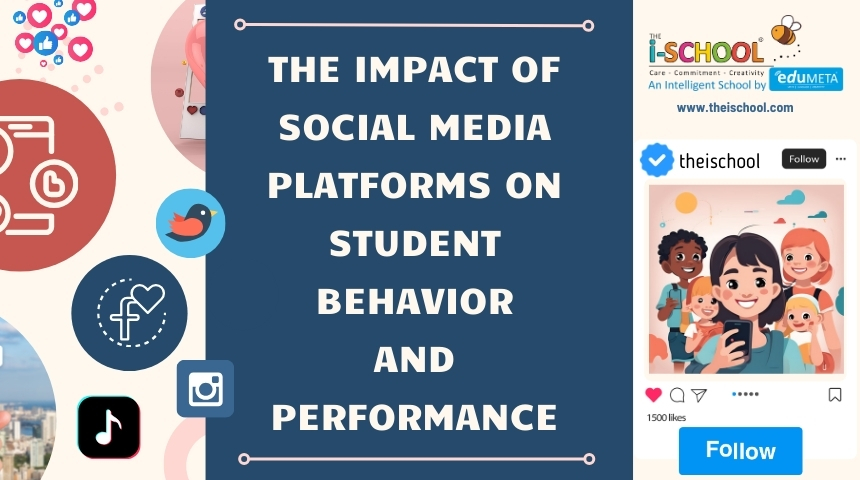The Impact of Social Media Platforms on Student Behavior and Performance

In today’s digital age, social media platforms play a significant role in our daily lives. From Facebook and Instagram to TikTok and Snapchat, these platforms are not just for socializing; they have a profound impact on various aspects of our lives, especially for students. This article explores the impact of social media platforms on student behavior and performance, shedding light on both the positive and negative effects.
Positive Impacts
Educational Resources and Support
Social media platforms provide access to a wealth of educational resources. Students can join study groups, follow educational pages, and participate in online discussions. These resources can enhance their learning experience and provide additional support outside the classroom.
Enhanced Communication
Social media enables students to communicate easily with their peers and teachers. This improved communication can lead to better collaboration on group projects and assignments, fostering a more cooperative learning environment.
Skill Development
Many social media activities involve creating content, which can help students develop various skills. For instance, making videos for YouTube or TikTok can enhance creativity, while writing blog posts can improve writing skills. These platforms also teach students about digital literacy and responsible online behavior.
Negative Impacts
Distraction and Reduced Attention Span
One of the significant drawbacks of social media is its potential to distract students from their studies. Constant notifications and the urge to check updates can interrupt study sessions, leading to reduced attention spans and lower academic performance.
Cyberbullying
Social media can sometimes be a platform for negative behavior, such as cyberbullying. This can have severe emotional and psychological effects on students, impacting their self-esteem and academic performance.
Sleep Disruption
Excessive use of social media, especially before bedtime, can disrupt sleep patterns. Lack of adequate sleep can affect students’ concentration, memory, and overall performance in school.
Comparison and Self-Esteem Issues
Social media often portrays idealized versions of life, which can lead to comparison and self-esteem issues among students. Seeing peers who seem to have a “perfect” life can make students feel inadequate and stressed, negatively affecting their mental health and academic performance.
Balancing Social Media Use
While social media has its advantages, it is crucial for students to use it wisely. Here are some tips for balancing social media use to minimize its negative impact:
Set Time Limits
Encourage students to set specific times for social media use and stick to them. Limiting screen time can help them focus better on their studies and other productive activities.
Promote Positive Use
Guide students to use social media for educational purposes. Following educational pages, joining study groups, and using platforms to enhance learning can make their social media use more productive.
Awareness and Education
Educate students about the potential negative impacts of social media. Awareness can help them make informed choices about their online behavior and interactions.
Encourage Offline Activities
Encourage students to engage in offline activities, such as sports, reading, and hobbies. These activities can provide a healthy balance and reduce dependence on social media.
Conclusion
The Impact of Social Media Platforms on Student Behavior is a topic that requires careful consideration. While social media can offer valuable educational resources and enhance communication, it also has potential downsides, such as distractions and cyberbullying. By promoting positive use and setting healthy boundaries, we can help students harness the benefits of social media while mitigating its negative effects. Ultimately, it’s about finding the right balance to ensure that social media contributes positively to students’ behavior and performance.
